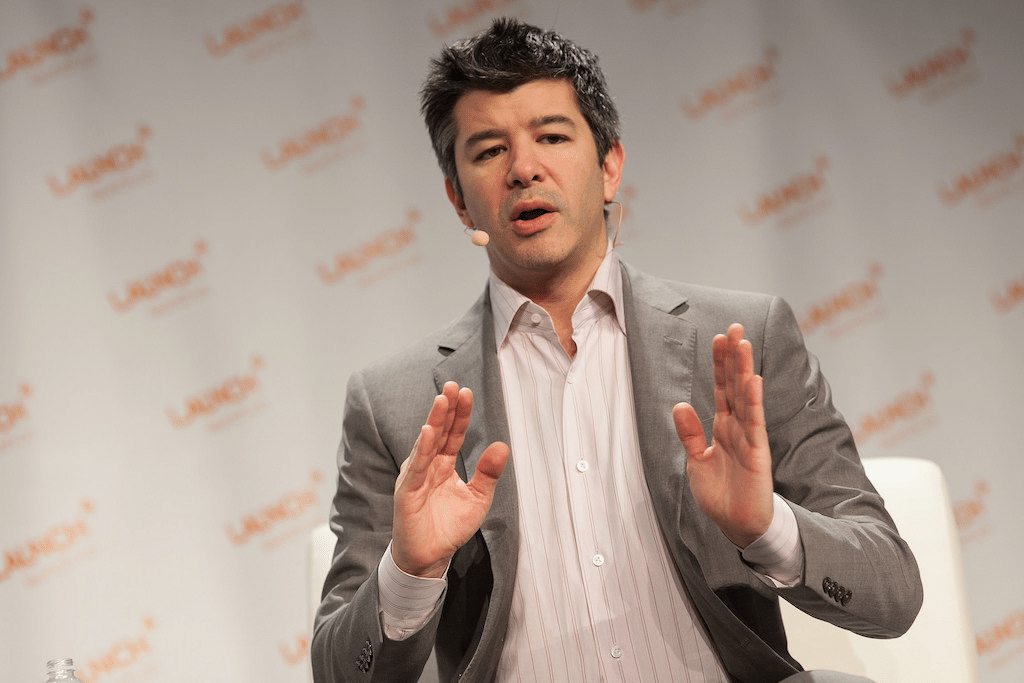Skift Take
Uber has gone from an unknown mobile app to a global service whose ambitious, and at times reckless, growth has brought it into the mainstream in cities around the world.
Uber is one of the highest valued and fastest growing startups to emerge in recent years and its ambitious global expansion has made it hot topic in cities around the world.
However, the word “uber” had a very different meaning just four years ago when the company’s name was first mentioned in the New York Times.
Following up on our post that tracked how the New York Times described Airbnb throughout its existence, we looked at how Uber has been mainstreamed over the years. The company was first mentioned in the newspaper in March 2011 as part of a roundup of new tech companies at South by Southwest.
Uber was initially described as, and operated as, a mobile app for hiring a car service, but it quickly transitioned into a taxi-hailing app. It’s descriptions have since bounced between a service for black cars and taxis, most recently being called a “ride-booking service.”
In 2014, amid Uber’s global expansion, its description was most often tied to the controversies that followed it in Germany, India, France, and beyond. In one month it was described as “the hottest, most valuable technology startup on the planet” and as “an app-based driving service that European taxi drivers protest.”
March 11, 2011: Uber, which makes a mobile application that lets people avoid taxi shortages by requesting a car service to give them a ride.
May 3, 2011: Uber, a start-up based in San Francisco, offers a cellphone application that is aimed at making using a car service quick and painless.
January 8, 2012: Uber, a service that allows people to order livery cabs through a smartphone application.
February 3, 2012: Uber, the on-demand taxi service.
May 11, 2012: Uber has become a darling of the technology industry for an app that allows a rider to call for a car and charge it directly to an online account.
June 26, 2012: Uber is essentially an expensive black car service with a novel way to call for a ride.
July 10, 2012: Uber, Maker of Summon-a-Car App.
September 4, 2012: Uber, a company based in San Francisco.
September 30, 2012: Uber.
December 2, 2012: Uber, one of the most prominent ride-requesting apps.
July 19, 2013: …the crowd-favorite Uber.
August 5, 2013: …the app company Uber.
December 11, 2013: Uber, the quasi-taxi service.
January 9, 2013: Uber, the red-hot rides start-up known for jacking up town-car fares.
February 7, 2014: Uber, one of the hottest companies out there.
March 12, 2014: Uber, the taxi-app-turned-transportation-logistics company that is one of the valley’s hottest start-ups.
April 22, 2014: Uber, a company valued at more than $3 billion that has revolutionized the old-fashioned act of standing in the street to hail a cab.
June 11, 2014: Uber, the app-based driving service that European taxi drivers protested today with traffic jams.
June 11, 2014: …ride-sharing service Uber is the hottest, most valuable technology start-up on the planet.
September 8, 2014: Uber, the American ride-sharing company that was recently banned in Germany.
September 24, 2014: Uber, the online for-hire car application which has run into multiple disputes with cab drivers and regulators in the United States and Europe.
October 14, 2014: Uber, the fast-growing rides-on-demand service that is changing the taxi industry.
December 11, 2014: Uber, the popular U.S. cab-hailing company banned in New Delhi.
December 31, 2014: Uber, the ride-booking company that has been plagued by vocal opposition from taxi associations and policy makers around the world.
January 27, 2015: Uber, a ride service facing legal challenges around the world.
The Daily Newsletter
Our daily coverage of the global travel industry. Written by editors and analysts from across Skift’s brands.
Have a confidential tip for Skift? Get in touch
Tags: uber
Photo credit: Kalanick speaks at the Launch Festival in February 24, 2014. JC Lasica / Flickr
